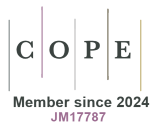Interaction between chemotherapeutics and anticoagulants
Interazione tra chemioterapici e anticoagulanti
DOI:
https://doi.org/10.19156/abtpn.2018.0073Keywords:
Atrial fibrillation, Cardioembolic stroke, Dabigatran, Renal cell carcinoma, ChemotherapyAbstract
Patients with metastatic renal cell carcinoma are at increased risk of bleeding, which must be taken into account if the thromboembolic risk profile requires anticoagulant therapy. Patients treated with sunitinib, especially if with a history of hypertension or coronary artery disease, have a higher risk of cardiovascular events, therefore they should be monitored closely for evidence of worsening arterial hypertension or signs of left ventricular dysfunction. The development of some complications associated with sunitinib increases the thromboembolic risk of patients, who often have to resort to anticoagulant therapy. In the absence of specific guidelines for the management of thromboembolic risk in cancer patients, the therapeutic choice must be guided by the evidence available in the literature to support the individual pharmacological classes. We describe her the case of a patient treated with sunitinib for clear cell renal cell carcinoma, with different comorbidities. The case provides interesting clues for optimal prophylaxis of cardioembolism in cancer patient with atrial fibrillation (Cardiology).








